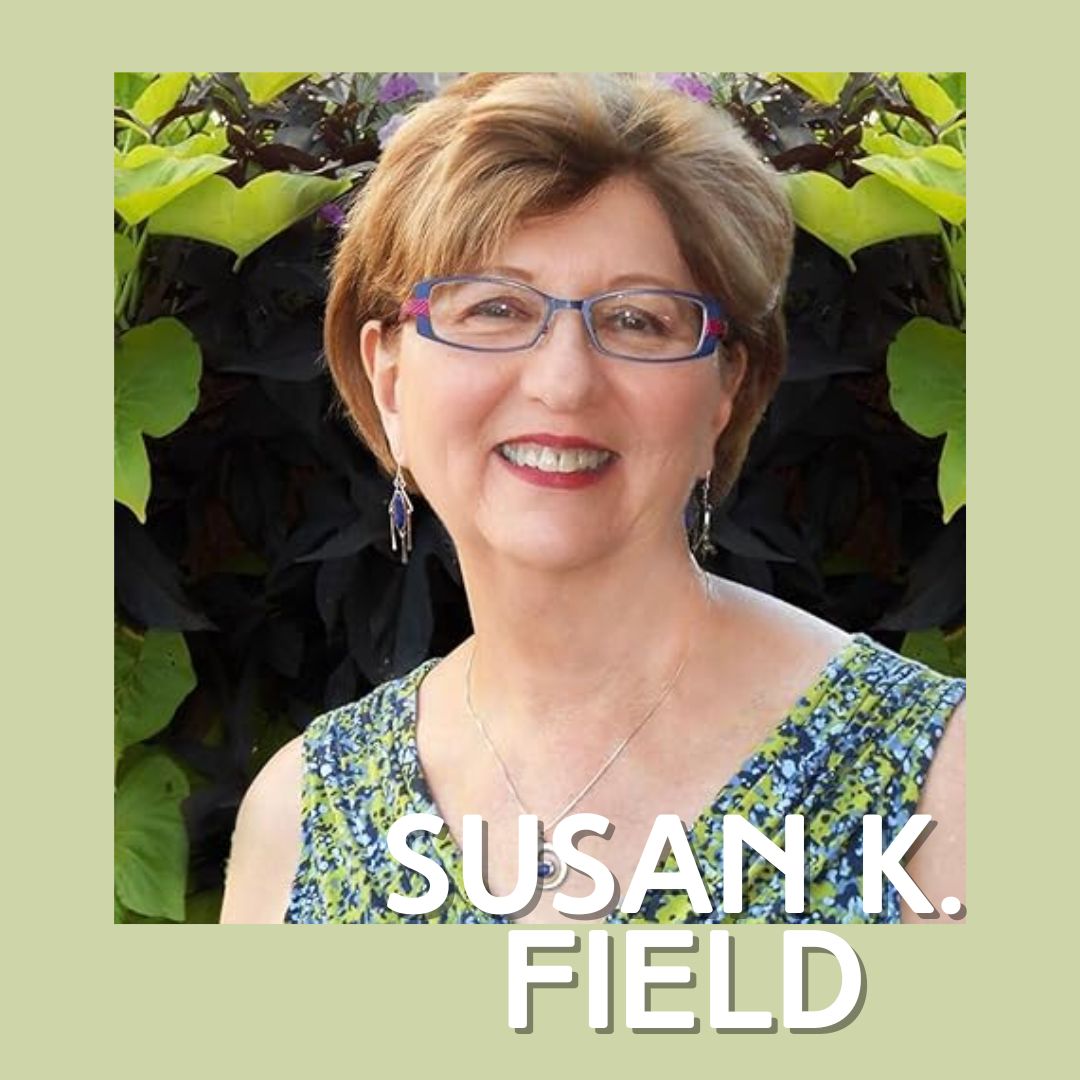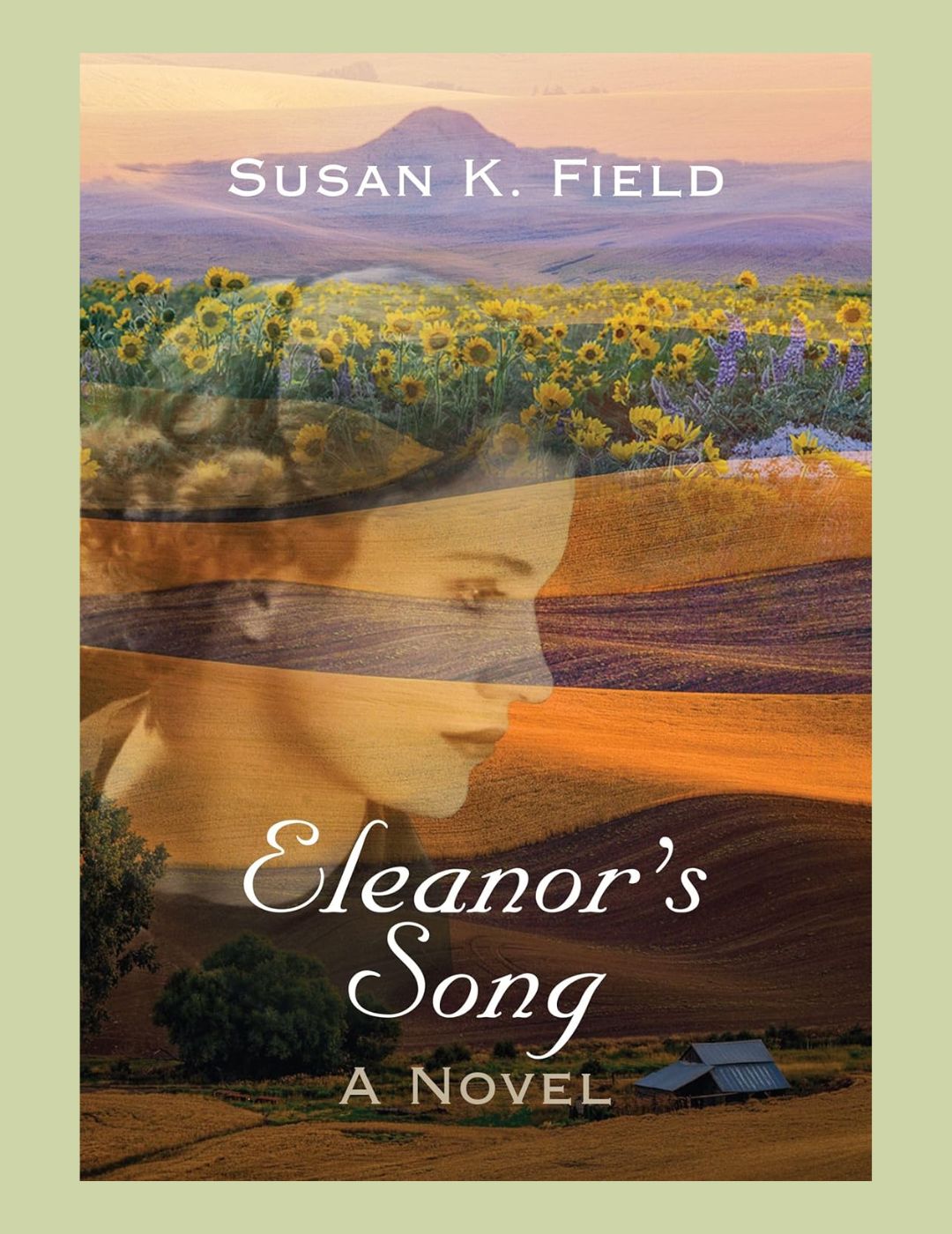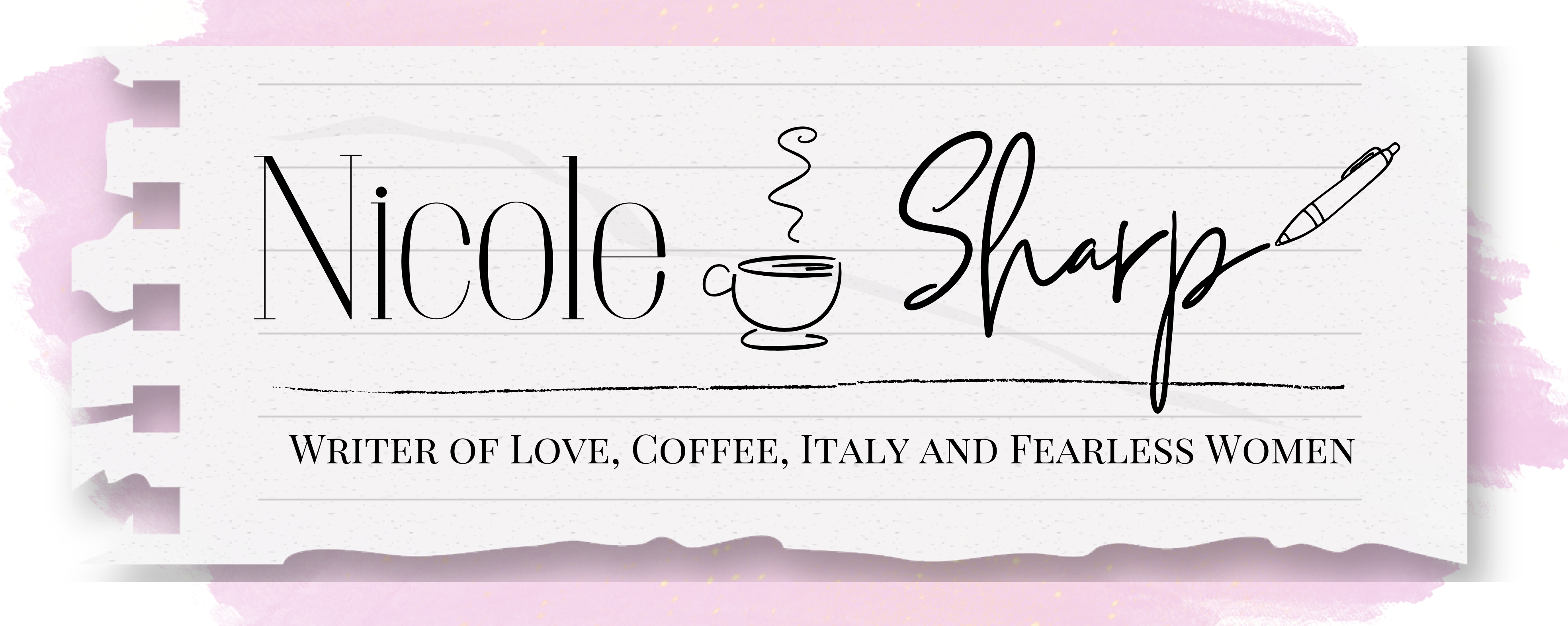Susan K. Field

Oh my friends, we have some amazing talent in the house today.
You know those authors who write so well that you often find yourself putting the book down and thinking ‘whoa; that is beautiful.’
We are in the presence of such talent today.
I have been lucky enough to meet this author in person and we’ve had some lovely coffee dates!
I give you the glorious Susan K. Field, the author of stories that celebrate resilient women, who in September 2023 debuted Eleanor’s Song, a historical novel about such a woman.
Susan’s fiction, creative nonfiction, and poetry have been published in literary journals, anthologies, and online sites. “The Shadow of a Decision,” an excerpt from her novel, won the 2021 national Kay Snow Writing Awards, Fiction category. And the same short story was published July 2021 in the literary journal, The Timberline Review, Issue # 10.
Earlier in her career, she was employed for fifteen years in organizational communications, writing and editing, and serving as a media spokesperson for businesses, government, and community nonprofits. During that period, she had the opportunity to champion the voices of those who could not speak for themselves. Her feature articles and essays from this advocacy work appeared in commercial magazines, trade journals, blogs, and newspapers.
She lives in the Pacific Northwest with her husband and has a penchant for hiking woodlands, smelling lilies in the heat of August, and photographing sunsets in autumn.
If you’re new to Interviews with Indies, I like to soothe my own curiosities and get the burning questions out of the way first.
Nicole: Coffee or tea?
Susan: Coffee. In fact, the first lines on my website invite readers to join me in my garden. “Welcome. Thanks for visiting my website. Come on in. Let’s have a cup of coffee together.”
My favorite is a cup of coffee with cream next to a decadent triple chocolate dessert.
Forest walking or hill walking?
Forests. I’m lucky to live in the Pacific Northwest where Douglas Fir and Vine Maples abound. Where paths traverse native plants such as Oregon Grape, sword ferns laden with golden spores, Salal, and oxalis (woodland sorrel) mingle with the smells of humus earth. Where chickadees, nuthatches, juncos and sassy crows flit from branch to branch and call to each other. Where sightings of deer near gurgling brooks seem to hypnotize me. Forest walking, for sure.
Salty or sweet?
Both. I love my Ben & Jerry’s Chocolate Therapy ice cream sprinkled with salted Spanish peanuts. Yum!
Morning or Night?
Morning. I try (emphasis on try) to get to the gym by 7:45 for an 8:00 a.m. stretching class. Then, when I do get a chance to sleep in, I can’t and still wake up around six. Oh well, it’s all good; I write the best first thing in the morning before breakfast with a cup of coffee sans dessert.
Pen and paper or Computer?
Computer. I made that transition years ago.
Okay now that the important stuff is out of the way, let’s really jump in. Susan, thank you so much for agreeing to be part of my Interviews with Indies, I am excited to (virtually) chat with you.
You have a strong sense of place in your book, which takes place in Oregon and Washington during the Great Depression and World War II. What do you think helped you in creating that sense?
Oh, Nicole, that’s an easy question to answer. I’m a Virgo in the Zodiac world. You know, we’re historically represented by the goddess of wheat and agriculture, an association that speaks to Virgo’s deep-rooted presence in nature, life, and the phenomena of the physical world.
Traveling on a different path, so to speak, I love the concept of staycations. Even before the word originated, I enjoyed traveling within my greater vicinity around Oregon and Washington. This area has such a diverse geography from the Pacific Ocean to the verdant western valleys over the Cascade Mountains to the semi-arid landscapes. I am a fifth-generation Oregonian, so my “duck feet” feel at home here.
My novel, Eleanor’s Song, is inspired by my mother’s early life. She grew up in Milton-Freewater (named Milston in my novel), Weston, Oregon, and Walla Walla, Washington. I’ve spent time in the eastern parts of these states and love the region’s Palouse Hills of green in the spring and golden wheat in the summer. When I’ve visited these towns and small cities, I connect with a sense of my family’s heritage. I think, maybe I’m walking where they walked.
Like a good cup of French pressed coffee, the environment is infused in my soul.
In historical fiction writing, I imagine there needs to be a fine line walked so that the book is accessible to today’s audience, but keeps with the language and the life as it was in the past. Did you have any difficulties in trying to find this balance? How did you decide to handle it?
Oh yeah. There is a fine line in creating a story set some seventy years ago and making it relevant to today’s audiences.
History? Blah! Blah! Blah! (rolling eyes emoji) But wait, good historical fiction isn’t the stuff we learned in school, like The Tariff of 1816. Let me explain.
This month I celebrate the first birthday of Eleanor’s Song. During the past twelve months, I’ve shared presentations on “Balancing Fact and Fiction: Writing a Historical Novel.” When I introduce this topic, I like to share the wisdom of two great writers. Mark Twain once said, “History never repeats itself, but it does often rhyme.” And another one by James Baldwin, an American writer and civil rights activist who garnered acclaim for his essays, novels, plays, and poems, wrote, “People are trapped in history and history is trapped in them.”
Each of us carries history within us. It’s a universal part of who we are – a part of our human condition. (Do you feel the history inside yourself? Yeah, it’s there. It’s in your heritage, customs, and the genes you inherited from your mother and father.)
Knowing this, I guess I didn’t find it difficult to find the balance because history is intrinsically woven into us. It’s relevant today, and many readers grasp its significance.
Also, because historical novels explore the roots of a story, authors have to dig to learn more about the characters’ world, society, and reasons why. But keep in mind, storytellers are not historians. Otherwise, we’d be entering the realm of nonfiction. Thus, recounting the factual life of a young woman during the Great Depression and World War II would be as dull as ironing. (Who irons anymore?) So, in Eleanor’s Song I champion the voice and resilience of a girl who matures into a young woman by weaving in themes of personal strength and love despite houselessness, hunger, and trauma. These themes and struggles exist today. We know of folks who struggle with houselessness, food insecurity, and/or partner violence. And we know of women who prevail under difficult circumstances.
I know your debut novel, Eleanor’s Song, was a labor of love as it was based on a true story. Was it difficult to write or was it helpful in a way?
Both. Writing historical fiction requires research, research, research, and I was fortunate to be able to spend time with my mother. I asked a lot of questions when we were together and poured over her boxes of photographs and letters. Also, when I worked in organizational communications, I interviewed victims of partner abuse for numerous articles I wrote. These formed the foundations of my research. While not easy, these were the smooth parts when writing this story. The rocky parts included wrapping my head around the grit and resilience my mother had to develop in order to face all the hardships in her life: poverty, food insecurity, losing her mother, being raised during the 1930s and 40s by a divorcee, living in squalor on the beach with an abusive husband, escaping from him, and raising a son for six years as a working, single mother in the late 40s and early 50s. That was the tough stuff.
In researching the period of time you wrote, was there anything (information, place, people) that you came across that you thought was just fascinating or cool?
Yeah! I had no idea during WWII that prisoners from Germany and Italy worked throughout our nation in our agriculture. Specifically, in Walla Walla, Washington, German prisoners lived in a compound near a base, and they were transported to area farms and canneries to harvest and process food. They worked inside a pea cannery where my mother and her friends also worked.
Further, because boys and men were away from their farms and fighting overseas, the U.S. recruited workers from Mexico to work the fields. The Bracero program was an agreement between the U.S. and Mexican governments that permitted Mexican citizens to take temporary agricultural work in the United States.
Where was I when these history lessons were taught?
What are you working on now? Actually, I’m going to use this question to strong arm you! (because I know you have an idea bubbling…) WHEN are you going to start working on your next book?
Okay. Okay. I’ve started. Remember, I shared that historical writers must research. Well, I’ve started researching about the British Home Children Program that started in 1869. More than 100,000 children (supposedly orphaned and/or poverty-stricken) from the United Kingdom were shipped to Australia, Canada, New Zealand, and South Africa. The premise was these children would be given the opportunity to start anew and live with a loving family. Unfortunately, the children were often used as indentured servants and were exposed to abuse and hardships.
Do you think you will stick with historical fiction? Or is there another genre you would like to write in?
Yes, I’ll likely stick with historical fiction. Like I shared earlier, we carry history within us, and it often has as much relevance today as it did then.
Do you ever think you’ll put out a book of your short stories? This question just came to me.
Hmmm! (light bulb blinking above my head) What an interesting question. I’m not sure. Short fiction and creative nonfiction aren’t necessarily easier to write, but they sure don’t take a couple of years to bang out. So, maybe.
I’d like to thank Susan once again for agreeing to do this interview.
And thank you Nicole and to you readers! Peace! Love! Coffee and Chocolate to all. This was fun!

Note: Eleanor’s Song does contain sensitive topics like abuse.
Book link:
Instagram:
https://www.instagram.com/susankaefield/
Website:
